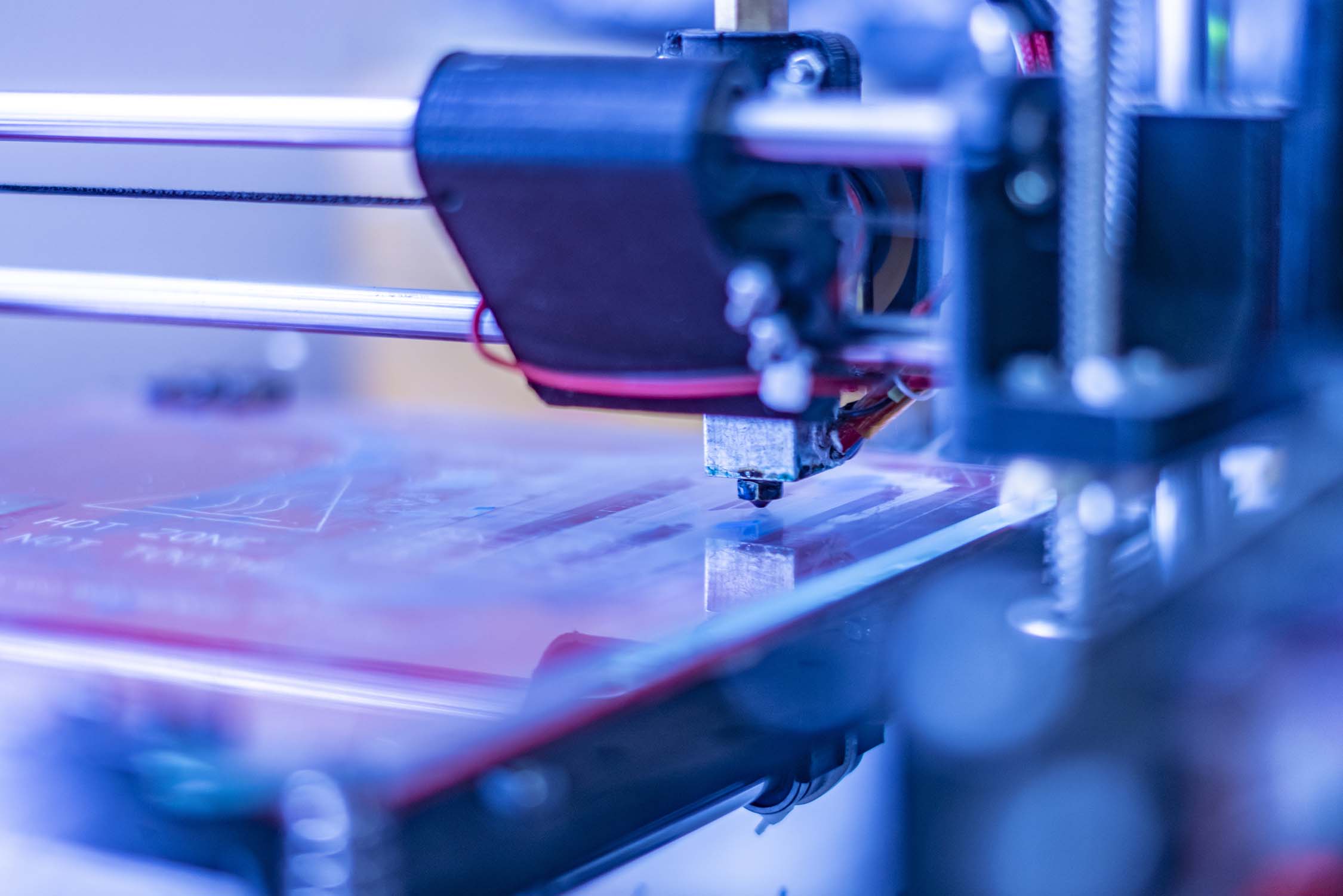Medical Device Technology Pitch Competition
October 20, 2022 Claire Murphy
Eight UMB medical device technologies received funding and support from the Medical Device Technology Sprint, a funding challenge conducted by the team from UM Ventures, Baltimore.
The University of Maryland, Baltimore's (UMB) technology transfer team, known as UM Ventures, Baltimore, has seen a steady increase in medical device innovation at the University in recent years. In response, it has developed a variety of initiatives and programs to support this growing field. From educational programming to a prototyping lab to specialized support to funding opportunities, the UM Ventures, Baltimore team is working to provide UMB’s inventors with the resources they need to advance their innovations.
Over the summer, the team ran a funding challenge, the Medical Device Technology Sprint, in partnership with the Robert E. Fischell Institute for Biomedical Devices. The multi-stage, fast-paced pitch competition — which was open to all UMB inventors and for technologies at any stage of development — was designed to accelerate the development of new medical device technologies.
Out of eight selected projects, six were advanced enough to receive funding. Two very promising projects were awarded engineering and development planning support that will help refine the projects, positioning them to be eligible for future funding rounds.
Technology Advancement Awards — $30,000
Handheld Central Arterial and Femoral Puncture Device
- Principal Investigator: Raj Sarkar, MD, PhD, division head of vascular surgery, vice chair for clinical operations, and professor, Department of Surgery, University of Maryland School of Medicine (UMSOM)
- Co-Principal Investigators: John Rzasa, PhD, chief engineer, and Kevin Aroom, MS, PE, engineer, both with the Robert E. Fischell Institute for Biomedical Devices
- This handheld, self-contained, and self-powered device is intended to provide automated vascular access
Percutaneous Access Graft
- Principal Investigator: Aakash Shah, MD, cardiac surgery resident, Department of Surgery, UMSOM
- Co-Principal Investigators: Bartley P. Griffith, MD, professor of surgery and The Thomas E. and Alice Marie Hales Distinguished Professor in Transplantation at UMSOM, and Zhongjun Jon Wu, PhD, professor of surgery, Department of Surgery, UMSOM
- This device is intended to allow percutaneous closure of access grafts and will remove the need to create an incision via seldinger technique to terminate arterial access grafts. If successful, it will reduce operation and recovery time, and allow less experienced surgeons to close access grafts.
Aortic Bleeding Control Device
- Principal Investigator: Joseph Rabin, MD, MS, MIA FACS, associate professor of trauma surgery, Department of Surgery, UMSOM
- Co-Principal Investigator: Zhongjun Jon Wu, PhD, professor of surgery, Department of Surgery, UMSOM
- This aortic bleeding control device is intended to simplify treatment of traumatic bleeding, allowing non-physicians, including nurses, physician assistants, and first responders, to control traumatic torso bleeding faster and outside equipped hospitals.
Prototype Development Awards — $15,000
Bellows Blood Pump
- Principal Investigator: Eric Lang, MD, general associate, Department of Surgery, UMSOM
- This device is a low-cost, manual, simple autologous blood pump for field and rural use where expensive pumps or trained technicians are unavailable.
SI Fixation Screw
- Principal Investigator: Charles A. Sansur, MD, professor, Department of Neurosurgery, UMSOM
- Co-Principal Investigator: Steven C. Ludwig, MD, division head of orthopaedic spine surgery and professor, Department of Orthopaedics, UMSOM
- This novel bone screw is intended to allow for better support of spinal hardware. It utilizes a special thread to provide better structural support between the spine, sacrum, and ilium.
AR Mirror Therapy
- Principal Investigator: Khanjan H. Nagarsheth, MD, associate professor, Department of Surgery, UMSOM
- Co-Principal Investigator: Raj Sarkar, MD, PhD, division head of vascular surgery, vice chair for clinical operations, and professor, Department of Surgery, UMSOM
- This wearable device is intended to support rehabilitation and treatment after major limb amputation.
Engineering Development Planning Awards — Project Support
Pericardial Space Access Device
- Principal Investigator: Charles C. Hong, MD, PhD, Melvin Sharoky MD, Professor in Medicine, co-chief, Division of Cardiovascular Medicine, and director of cardiology research, Department of Medicine, UMSOM
- Co-Principal Investigator: Timm-Michael Dickfeld, MD, PhD, FACC, FHRS, professor of medicine and director of electrophysiology research, Division of Cardiovascular Medicine, Department of Medicine, UMSOM
- This device would allow penetration of the pericardial sac with lower risk of puncturing the heart muscle. The first indications would be for Epicardial mapping and ablation procedures for arrhythmias, drainage of pericardiac fluid for therapeutic or diagnostic purposes (Cardiac Tamponade, Pericardial Effusion), and/or leadless pacemaker or defibrillator implantation. Future therapies could include the delivery of drugs, stem cells, genes, modified mRNA, and siRNA.
Sustained Release of Anti-Virus Drugs Platform
- Principal Investigator: Tao Lowe, PhD, professor, Department of Oral and Maxillofacial Surgery, UMSOM, and professor, Fischell Department of Bioengineering in the A. James Clark School of Engineering at the University of Maryland, College Park.
- This device would be an injectable and biodegradable in situ depot-forming platform technology, designed for the sustained release of anti-virus drugs.
All of the recipients are working with UM Ventures, Baltimore project managers this fall to advance their projects with the goal of producing outcomes that support commercial development and funding. Several of the projects are currently being developed with engineering support from the Fischell Institute.
“We were really excited about this initiative. There are so many interesting and promising medical device technologies and ideas at UMB, and helping advance those concepts is really gratifying for our team,” said Phil Robilotto, director of UM Ventures, Baltimore. “This Sprint challenge was also a great opportunity for our team to partner with the engineering experts from the Fischell Institute. Having their participation in the application review and judging as well as the continuing development work is a huge benefit.”
The Sprint review panel included Bill Bentley, director of the Robert E. Fischell Institute for Biomedical Devices; the Robert E. Fischell Institute for Biomedical Devices; staff from UM Ventures, Baltimore; TEDCO representatives; and leadership from two UMB medical device startups — Protaryx and CoapTech.
Additional programs and challenges that support medical device development are being planned.